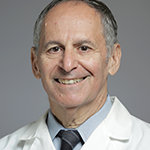SAN DIEGO—In an advocacy update session at ACR Convergence 2023, ACR staff described progress in multiple priority areas, including access to care and workforce issues.

Systemic Sclerosis: More Than Skin Deep
Updates from the ACR Convergence 2023 Review Course, part 6 SAN DIEGO—The pre-conference Review Course at ACR Convergence 2023, held Saturday, Nov. 11, and moderated by Noelle Rolle, MBBS, assistant professor in the Division of Rheumatology, associate program director of the Rheumatology Fellowship at the Medical College of Georgia, Augusta University, and Julia Schwartzmann-Morris, MD,…

The Heterogeneity of Psoriatic Arthritis
SAN DIEGO—Differences between psoriatic arthritis and rheumatoid arthritis highlight the need for the development of imaging modalities, laboratory tests and other biomarkers that are explored and validated specifically for PsA to advance the goal of personalized or precision medicine. In this article, expert David S. Pisetsky, MD, PhD, explores the top research in psoriatic arthritis presented at ACR Convergence 2023.

More Than Meets the Eye
SAN DIEGO—In recent years, the recognition of nr-axSpa has helped identify the cause of back pain in many patients previously without a diagnosis. However, questions remain about how to avoid under- or over-diagnosing the condition. In the session titled, Pearls and Pitfalls in Diagnosing Non-Radiographic Axial Spondyloarthritis, several speakers provided high-yield insights on this topic. Diagnostic challenges, imaging options and mimics to watch for were among the specific points of discussion.

Life with Arthritis: Kaleb Michaud, PhD, Shares His Story
SAN DIEGO—“I’m going to get personal,” said Kaleb Michaud, PhD, in the ARP Distinguished Lecture at ACR Convergence 2023. When he was 3 years old, the young Kaleb was diagnosed him with juvenile rheumatoid arthritis (JRA).

Non-Radiographic Axial Spondyloarthritis: A Review
SAN DIEGO—Alexis Ogdie-Beatty, MD, MSCE, associate professor of medicine, associate professor of epidemiology, Department of Medicine, Hospital of the University of Pennsylvania, Philadelphia, gave a presentation on non-radiographic axial spondyloarthritis (nr-axSpA) in the Review Course prior to ACR Convergence 2023.

Thrombotic Microangiopathies & Rheumatology
SAN DIEGO—Thomas Ortel, MD, PhD, chief, Division of Hematology, Department of Medicine, Duke University School of Medicine, Durham, N.C., discussed thrombotic microangiopathies at ACR Convergence 2023. With a variety of causes, including autoimmune diseases, the connection with rheumatology is evident.

Doctor & Patient: A Study in Relapsing Polychondritis
SAN DIEGO—Marcela Ferrada, MD, who most recently was on faculty with the National Institutes of Health (NIH), Bethesda, Md., discussed relapsing polychondritis (RP), a condition that she herself has.

Growing Up
SAN DIEGO—In the pre-ACR Convergence 2023 Review Course, Rebecca Sadun, MD, PhD, assistant professor in medicine and pediatrics, Duke University School of Medicine, Durham, N.C., focused on transitions from pediatric to adult rheumatology care for patients with juvenile idiopathic arthritis (JIA).

The Eyes Have It
SAN DIEGO—Many rheumatologists see patients referred for uveitis, and Laura Kopplin, MD, PhD, assistant professor of ophthalmology and visual sciences, University of Wisconsin, Madison, discussed inflammatory disease of the eye at ACR Convergence 2023.
- « Previous Page
- 1
- …
- 19
- 20
- 21
- 22
- 23
- …
- 43
- Next Page »